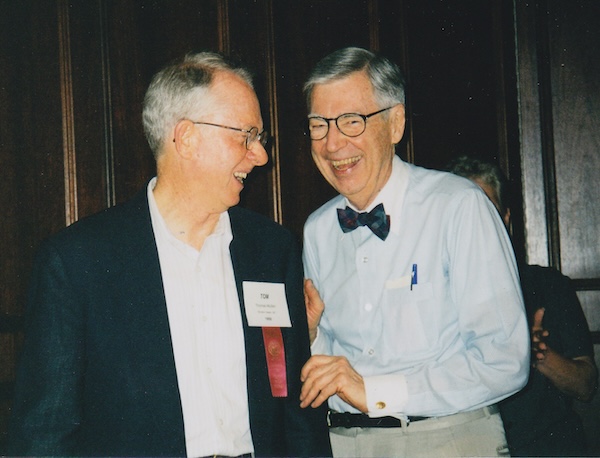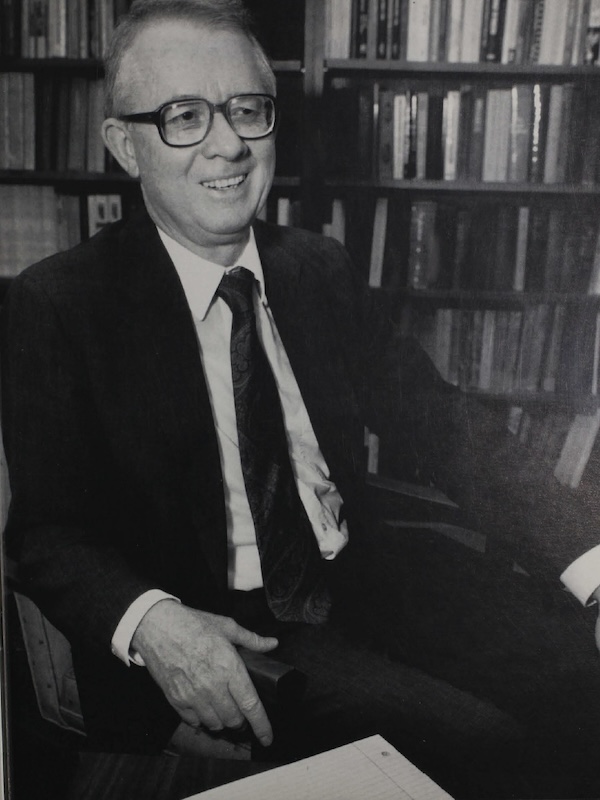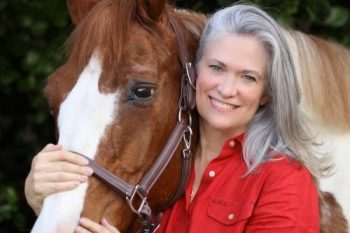
Thomas Mullen (P ’85, ’88) is well-known as a beloved figure at Wake Forest. After joining the history faculty in 1957, he served as dean of the college from 1968 until 1995. Mullen received the University’s highest honor, the Medallion of Merit, in 1995 and retired in 2000.
But you may not know he was friends with Mr. Rogers. Here’s the story in Dean Mullen’s own words:
Fred Rogers in 1948 transferred from Dartmouth to Rollins College (Winter Park, Florida), where I began as a freshman in 1947. Fred and I got to know each other well. He majored in music composition. Most of my closest friends were music majors, partly because I was singing in the Rollins Chapel Choir and the annual Bach Festival Chorus. When Fred came, he was quickly invited to join the small local fraternity that I had helped found in 1947-48. He joined without hesitation, probably because so many members were in music.

Almost at once, he and I were close friends. His family rented a house in Winter Park so they would have a place when they visited Fred, and so he would have a comfortable place to study when he needed to get away from the college life and its distractions. Not long after we met, he invited me to study in the rented house whenever I wished. Since I was on scholarship and needed to earn especially good grades, that was a real boon for me, so I owed him a lot.
Two of my other friends from the music department were Jeannine Romer and Joanne Byrd, both gifted piano majors. They spent much of their lives after Rollins traveling the United States and giving concerts. Joanne became Mrs. Fred Rogers and the mother of their two sons. Joanne has passed on, but I am still in touch with Jeannine, who became Jeannine Romer Morrison; her son, Alan Morrison, is one of the best organists in the U.S. (and maybe in the world). It all goes back to the far-reaching influence of the Rollins music department, one of whose most important buildings was funded by Fred and Joanne.
Among the fascinating things Fred told me about himself was the effect on his childhood of the kidnapping/murder of (famed aviator Charles) Lindbergh’s baby boy (in 1932). Fred’s parents feared that he might be another such target, so they had him taken to kindergarten and school by the family’s chauffeur. During those early years he was not allowed to play freely with other children lest he be picked up by a kidnapper. As a result of these early experiences, Fred somehow felt inferior to other children. That experience influenced every one of the “Mister Rogers” programs, as Fred assured his young viewers he liked them just the way they were.
I have a good deal of Fred Rogers material, including some he sent me about his early experience on a TV program for children called “The Children’s Corner.” He sent this to me in Stuttgart, Germany, as I fulfilled my military obligation during the last months of the Korean War. I (also) have a sizable collection of vinyl recordings of songs he wrote and performed. My last meeting with Fred was in the late fall of 2002 at the Rollins alumni reunion, when we got together to reminisce and sing some of the old songs.


